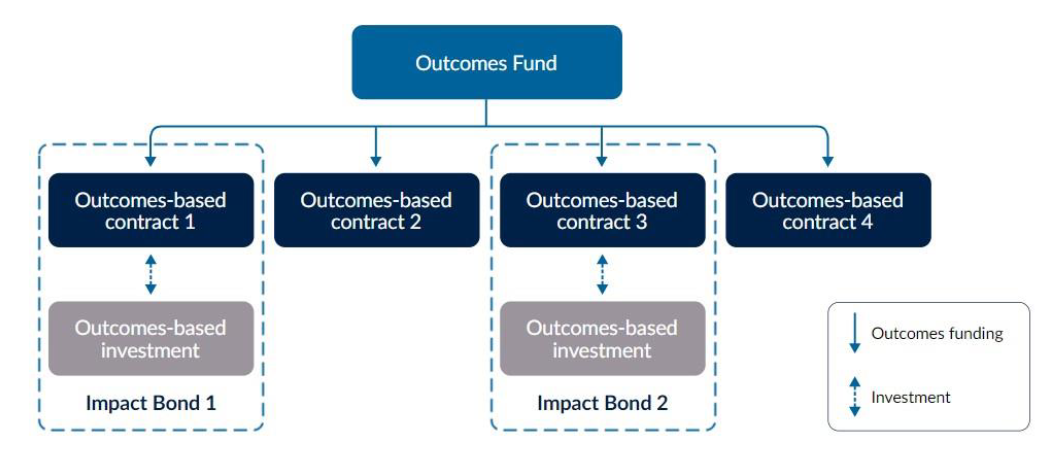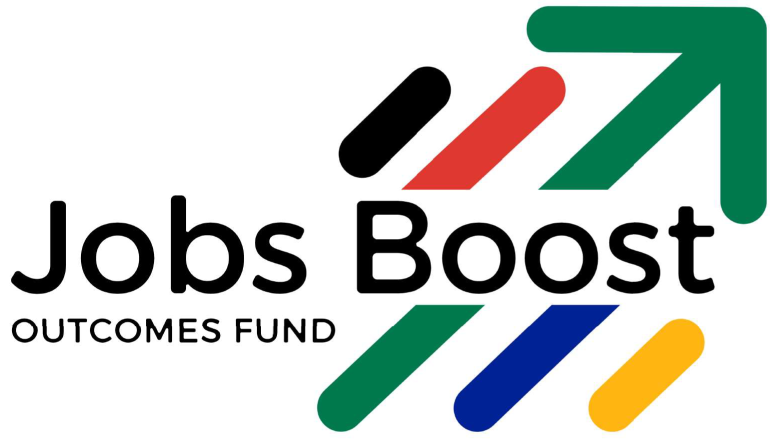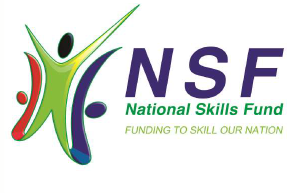Jobs Boost is a R300 million (~$17 million) pay-for-performance model being piloted in South Africa. It is an outcomes fund that works with implementing partners to secure sustainable, quality jobs for unemployed, excluded youth. It is the largest youth employment outcomes fund in the world, and a major innovation in the South African government’s effort to confront the chronic youth unemployment problem.
Jobs Boost was initiated by the Presidency as part of the Presidential Youth Employment Intervention (PYEI). It received funding support through the Presidential Employment Stimulus and directly from the National Skills Fund. Funding for the design of the programme was provided by the Michael & Susan Dell Foundation.
Krutham designed and will manage the pilot programme. The Jobs Boost Outcomes Fund is a project of a nonprofit company, Employment Outcomes NPC, which Krutham established to administer the fund.
For the pilot, the National Skills Fund, a part of the Department of Higher Education and Training, will act as the sole outcomes funders, a pioneering role for a public entity. By acting as the outcomes funder, the NSF is spearheading innovation in government grant-making for skills development and setting global precedents for new approaches to funding solutions for youth unemployment.
What is an outcomes fund?
Put simply, an outcomes fund pays for the successful delivery of outcomes, rather than inputs and activities. These instruments are an innovative approach to managing risk and improving efficiency in the delivery of public services. Traditional approaches to job creation are focused on inputs and activities, such as training, workshops or events. In contrast, an outcomes fund provides funding only once the intended results, such as gaining and holding a high-quality job, have been achieved. This enhances the public sector’s probability of getting value for money while transferring the performance risk to the implementation partners. This incentivises implementation partners to innovate and find new ways of delivering outcomes with the highest chances of success.
Outcomes funds are a variety of pay-for-performance contracting models and have some features in common with social impact bonds.
Why the new approach?
South Africa dedicates substantial resources through fiscal disbursements every year in an attempt to combat unemployment. While this has had some impact, it has also faced inefficiencies.
Traditional grant funding mechanisms tend to support training which has resulted in large numbers of youth undergoing skills development but not necessarily finding meaningful work. This can arise because the skills training is not well calibrated for the needs of employers. Similarly, work experience programmes have created a revolving door of internships where youth are entered into successive internship programmes, sometimes with very low remuneration, and still not achieving meaningful work placements.
This new approach shifts payment to job placements that are achieved. While disbursal of funds is contingent on achieving predetermined outcomes, it is not prescriptive in its approach. How organisations select jobseekers, what form of training and support they offer, which industry they place the jobseekers into, etc, are all factors that are open to the implementation partner to decide on, based on their capabilities and innovations. This spurs much closer engagement with employers and drives innovation.
There are stipulations on the youth who are employed, in that they should come from circumstances that has made it hard to get a job previously. There are also stipulations about the type of job, including that it pay at least minimum wage and be permanent. There is also a test of additionality – whether the jobs filled through the programme are new jobs, or whether they would have been filled anyway.
To receive all announcements and other news related to Jobs Boost, please sign up to our mail list.
sign up for updates
How does Jobs Boost work?
First, a two stage process was conducted to select implementation partners.

Jobs Boost published a call for expressions of interest (EOI) for organisations that wanted to become implementation partners. Additionally, Krutham hosted market development workshops with interested parties after publication of the EOI to guide prospective implementation partners and other interested market stakeholders on what to expect from the fund.
sign up for updates
All EOIs were be assessed and organisations that were deemed to be suitable to bid were invited to submit complete proposals through a closed request for proposal (RFP) process. Krutham hosted a second market development workshop for prospective implementation partners to provide guidance on developing proposals.
The expression of interest required basic information only. Those selected to move to the proposal stage were required to provide detailed proposals.
For the purpose of this programme, the key criteria are defined as:
Excluded youth
Youth (18-34 years old) that experience difficulty in securing employment in
South Africa, largely due to their historical circumstances. Included in the definition of previously excluded youth are the following:
- Be 18-34 years old (preference will be given to those 18-24)
- Registered on the PYEI database via the SA Youth Mobi platform.
- Having attended a quintile 1, 2, or 3 public school and/or
- Having been a beneficiary of the Child Support Grant (CSG) as a child
- Being able to provide documentary evidence of the above
- Highest level of completed education is matric
Quality jobs
Quality jobs must meet the following criteria:
- Full time (at least 30 hours of work per week) paying a salary of minimum wage or higher.
- Permanent or at least a 12-month contract.
- A formal sector employer fully compliant with Basic Conditions of Employment Act requirements and with a valid certificate of compliance with the Compensation Fund.
Partners could be NGOs, companies, industry associations or other organisations that will implement programmes to place youth that meet the pilot criteria in quality jobs. Partners could not be employers themselves, however they may have a formal relationship with employers to work with the employer to ensure successful placement. The partners were selected based on the quality of their proposals (including budget), and their capability to implement (including historical performance).
Jobs Boost releases grant funding tranches to implementation partners as and when the achievement of milestones has been assured by an outcomes auditor. Implementation partners submit regular reports and other information to Jobs Boost, and our staff visit implementation sites regularly.
The milestones that will trigger funding flows are as follows:
| Milestone |
Criteria |
Proportion of funding flows
|
| Milestone 1 |
Enrolment into programme |
20% |
| Milestone 2 |
Placement into quality job |
40% |
| Milestone 3 |
3 months sustained employment |
20% |
| Milestone 4 |
6 months sustained employment |
20% |
Want to know more?
If you are considering an outcomes fund or want to know more about other impact investing approaches, engage with the Krutham impact team here.
If you want to know more about Jobs Boost, contact us here.
Financing partners
As this programme is structured purely as an outcomes fund, we anticipate that there might be implementation partners that have working capital constraints hindering their ability to participate.

Figure 1 – Relationship between outcomes fund and supported outcome contracts. Outcomes funds issue, or provide funding towards, multiple outcomes-based contracts, not all of which may involve independent investors.
Foundations and other private sector participants are invited to indicate their interest in acting as financing partners to the implementation partners. Krutham will provide introductions, but the relationship between such financiers and the implementing partners will be between them. Such upfront investment supports implementation partners to run their programme and then reimburse funders upon successful completion of the outcomes and receipt of outcomes payments. This finance will serve to bridge the cash flow gaps that implementation partners may face and, depending on the risk appetite of the financing partner, may also allow implementation partners to test riskier projects that could have a lower probability of success without risking their own financial resources.
Jobs Boost will only facilitate the introduction of the implementing partners to the financing partners and will not be involved in any of the contract discussions between the partners.
Organisations that wish to become financing or placement partners are encouraged to get in touch with Job Boost.
get in touch







